Humans
Sign up for our newsletter
We summarize the week's scientific breakthroughs every Thursday.
-
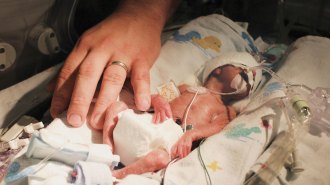 Health & Medicine
Health & MedicineMom’s immune system and microbiome may help predict premature birth
Analyzing patients’ immune systems, microbiomes and more, researchers find signals to pinpoint and halt premature labor.
-
 Humans
HumansThe medieval Catholic Church may have helped spark Western individualism
Early Catholic Church decrees transformed families and may help explain why Western societies today tend to be individualistic and nonconformist.
By Sujata Gupta -
 Life
LifeSelf-destructing mitochondria may leave some brain cells vulnerable to ALS
Mitochondria that appear to dismantle themselves in certain brain cells may be a first step toward ALS, a mouse study suggests.
-
 Health & Medicine
Health & MedicineA new dengue vaccine shows promise — at least for now
The latest vaccine against dengue shows promise in protecting children from the disease, but will need longer term study to ensure kids are safe from future infections.
-
 Health & Medicine
Health & MedicineA human liver-on-a-chip may catch drug reactions that animal testing can’t
An artificial organ may better predict serious drug side effects than animal testing does.
-
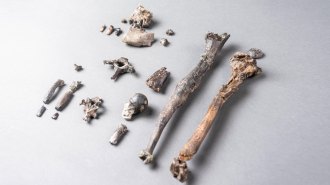 Humans
HumansFossils suggest tree-dwelling apes walked upright long before hominids did
A partial skeleton from an 11.6-million-year-old European ape still doesn’t answer how hominids adopted a two-legged gait.
By Bruce Bower -
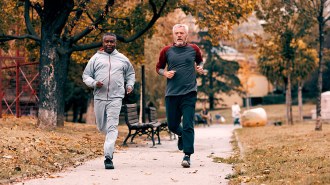 Health & Medicine
Health & MedicineRunning just once a week may help you outpace an early death
Any amount of running can lower a person’s risk of early death, an analysis of multiple studies finds.
-
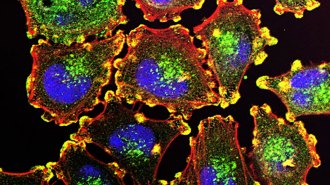 Health & Medicine
Health & Medicine50 years ago, cancer vaccines were a dream
Researchers are now prodding the immune system to fight cancer, reviving the longtime dream of creating cancer vaccines.
-
 Science & Society
Science & SocietyCan neighborhood outreach reduce inner-city gun violence in the U.S.?
While mass shootings grab U.S. headlines, the steady scourge of inner-city gun violence gets less attention — and fewer solutions.
By Bruce Bower -
 Archaeology
ArchaeologyA toe bone hints that Neandertals used eagle talons as jewelry
An ancient eagle toe bone elevates the case for the use of symbolic bird-of-prey pendants among Neandertals, researchers say.
By Bruce Bower -
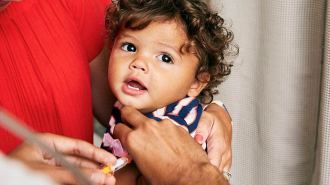 Health & Medicine
Health & MedicineNew details on immune system ‘amnesia’ show how measles causes long-term damage
Measles wipes the memories of immune cells in the body.
-
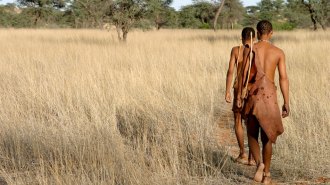 Humans
HumansHumans’ maternal ancestors may have arisen 200,000 years ago in southern Africa
New DNA findings on humankind’s maternal roots don’t offer a complete picture of how and when Homo sapiens emerged.
By Bruce Bower